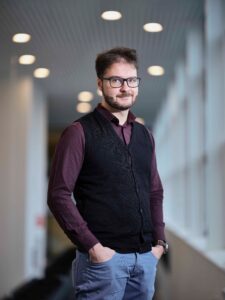https://s.uconn.edu/meseminar3/5
Abstract:
Energy demand and the need to reduce emissions have pushed combustion research towards the development of more efficient, environmentally-friendly engines. In lean-burn systems both high efficiency and low emissions can be achieved in principle by controlling the flame temperature; however the short resident times in practical systems and the unsteady coupling between turbulent mixing, thermochemistry and acoustics makes the realisation of such systems very challenging. Large eddy simulations are attractive to predict this unsteadiness but require modelling of the turbulence-flame interaction at the small scales, and this modelling becomes particularly challenging at high-pressure, realistic conditions due to the limited amount of available validation data and the need to keep the computational cost relatively low. In this seminar recent development of LES modelling in the context of presumed PDF approaches will be discussed and their predictive abilities and limitations analysed for conditions relevant for gas turbines. An application to a bi-stable combustor will be then presented at the end of the talk.
Biographical Sketch:
Dr Ivan Langella is an Assistant Professor in Sustainable Aircraft Propulsion at the faculty of Aerospace Engineering at TU Delft. He obtained his Master degree in Naples, Italy, in 2011, and his PhD in Mechanical Engineering from University of Cambridge, UK, in 2016. Since then he has worked as a postdoctoral associate at the University of Cambridge until June 2018 on advanced combustion systems of aeronautical interests in collaboration with Rolls-Royce and DLR Germany. From June 2018 to April 2020 he has worked as Lecturer in Thermofluids science and Engineering at Loughborough University, UK, before joining the research group in Delft.
